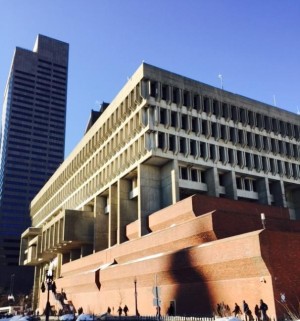Boston should use its good credit rating to make a big investment in creating affordable housing, a leading candidate for mayor says.
At-large City Councilor Michelle Wu, joined by District 8 City Councilor Kenzie Bok, called for the city to issue bonds specifically marked for building deeply affordable, energy-efficient and city-owned housing.
“The COVID-19 pandemic has reinforced that housing stability is the foundation for public health and well-being – but far too many Boston families are severely rent-burdened and at risk of eviction,” Wu said in a statement. “It is the city’s responsibility to use every financial tool at our disposal to provide safe, healthy, accessible, and affordable housing for every Boston resident.”
The bonds would expand on an idea the city has begun to use to pay for climate resiliency work. The city completed its first issuance of $60 million worth of “green bonds” in December, aimed at the growing market for ESG, or “environmental, social and governance,” investments on Wall Street.
With the city’s AAA credit rating, Wu told Banker & Tradesman in an email, the city could very cheaply borrow $2 billion over 30 years to fund new homes while staying below the city debt limit, which caps total debt payments at 7.5 percent of the operating budget. The city’s debt expenditures sat at 5.2 percent of the operating budget last year, leaving room for about $30 million in annual debt service payments.
“Given the urgency of our dual climate and housing affordability crises, I believe we’re in a position to leverage our high bond rating to prioritize green and social housing as an investment in our economy,” Wu said. “Our bond rating isn’t of value by itself to the residents of Boston – it needs to be utilized to raise capital in a cost effective way to invest in improving our city.”
Wu said the city could use the money in a number of ways. Boston could partner with the Boston Housing Authority – a separate governmental entity – to build new public housing, to seed community land trusts, purchase distressed multifamily rental properties outright or finance affordable housing operators’ purchases of the same properties, “empowering communities most historically affected by predatory policies like redlining and disinvestment,” she said.
“Across all of these options, the underlying goal is to create permanently affordable housing and extend the economic, health and social benefits of energy-efficient and emissions-free buildings to low-income Boston residents,” Wu said.
Wu and Bok are planning a city council hearing to explore the idea further.




 |
| 


